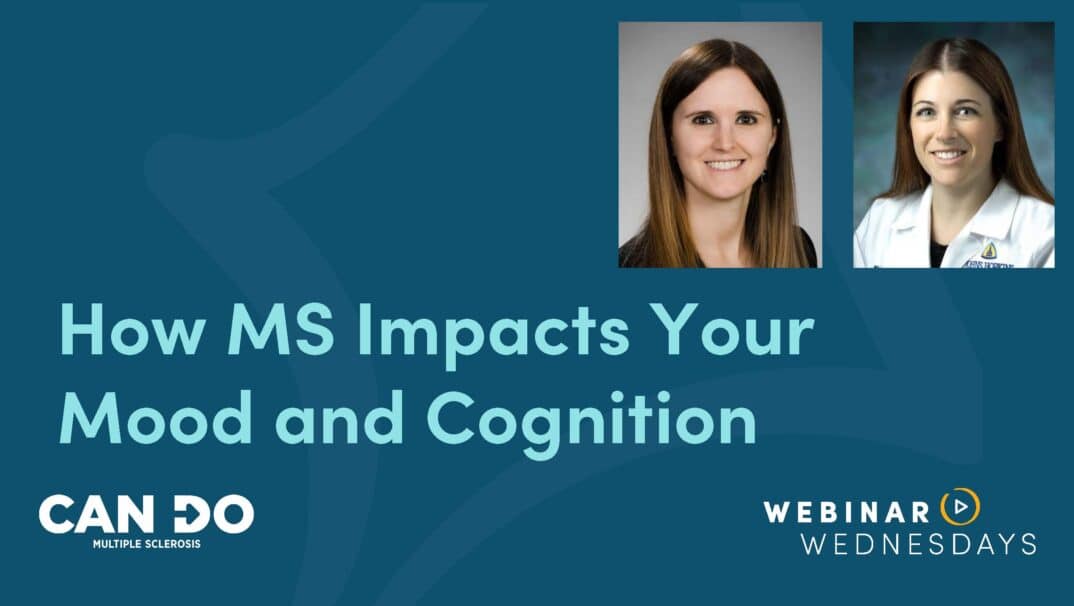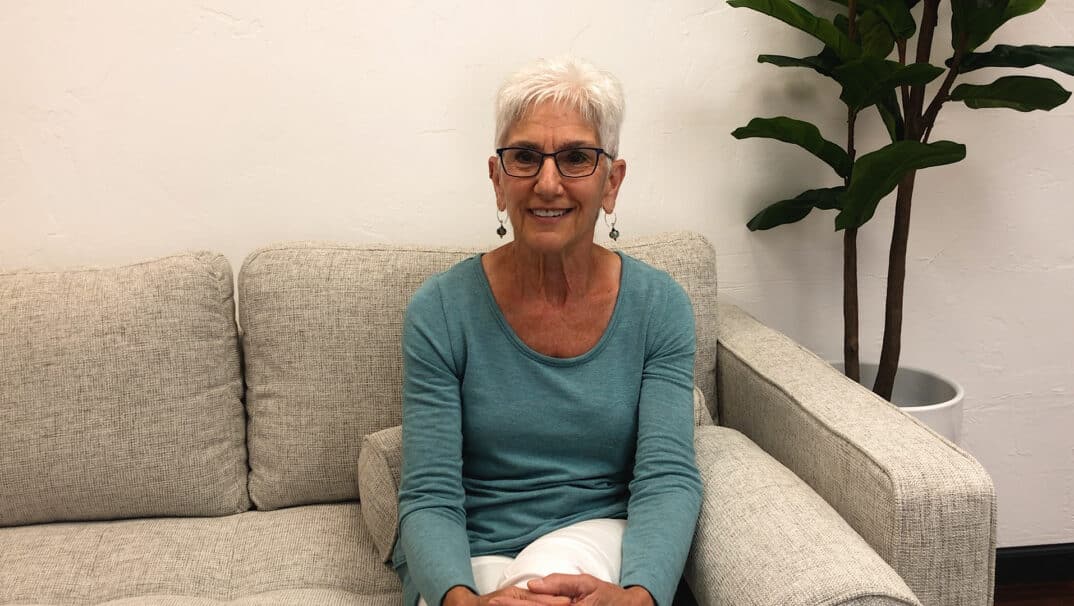How MS Impacts Your Mood & Cognition
Rehabilitation in Progressive MS Found To Help Cognitive Function
Reposted with permission from MS News Today

10 Oct 2023 | ~4:30 Engagement Time
Original Source
MS News Today. This article was reposted with permission from MS News Today.
2 Non-Pharmacological Approaches Both Show Benefits For Patients
Two non-pharmacological rehabilitation approaches — one using a computer program designed to improve working memory and the other involving standardized cognitive-behavioral group sessions — both improved the cognitive function of people with progressive forms of multiple sclerosis (MS), a new study reported.
While varying medications often are used as the first line of therapy in MS, the researchers wrote that evidence of their effectiveness “is still too inconclusive to yield concrete recommendations for the treatment of neuropsychological symptoms” in patients. However, the team noted that “cumulative data are available indicating the promising value of non-pharmacological rehabilitation approaches.”
In this study, the tested computer program was found to improve scores for attention, concentration, and prospective memory. Meanwhile, cognitive-behavioral education contributed to less cognitive difficulties and enhanced mental health, the results showed. Using both interventions largely retained the benefits of each of the approaches alone.
“The combination of both approaches is thus suggested,” the researchers wrote.
The study, “Non-pharmacological randomized intervention trial for the management of neuropsychological symptoms in outpatients with progressive multiple sclerosis,” was published in the journal Applied Neuropsychology: Adult.
Investigating Non-Pharmacological Rehabilitation Approaches in Progressive MS
Besides the well-described physical disabilities associated with MS, an autoimmune condition affecting the brain and spinal cord, less apparent symptoms include cognitive impairment, fatigue, and mood disturbances. Such symptoms can negatively impact quality of life and general well-being.
Non-pharmacological or non-drug-based rehabilitation approaches to treat these neuropsychological symptoms have shown the potential to stabilize or enhance cognitive functions such as memory, information processing, and executive functions, while reducing fatigue and promoting well-being.
Still, while individuals with progressive forms of MS commonly experience more severe cognitive impairment and fatigue, non-pharmacological rehabilitation research has mainly focused on relapsing forms of MS.
“More work is needed to confirm initial available indications of effectiveness and to clarify more precisely which rehabilitation strategies are particularly suited for [people with progressive forms of the disease],” the researchers wrote.
To better understand how non-pharmacological rehabilitation approaches impact these patients, researchers in Germany and Switzerland applied two interventions to 13 patients with primary progressive MS and 24 with secondary progressive MS. All of the patients were able to walk.
Testing BrainStim and MaTiMS Interventions in Patients
The interventions were called BrainStim and metacognitive training in MS (MaTiMS).
BrainStim is a home-based computer program designed to improve working memory — meaning the temporary and selective storing and processing of incoming information. It has been shown to improve cognitive abilities and fatigue symptoms in healthy individuals and younger MS patients.
MaTiMS, on the other hand, is a standardized cognitive-behavioral group intervention based on the concept of metacognition. This involves being aware of one’s own cognitive challenges while developing coping strategies. MaTiMS was found to promote self-efficacy — people’s belief in their capacity to attain specific goals — ease fatigue, and enhance quality of life.
Among the 37 total participants, 13 were randomly assigned to BrainStim, 13 to MaTiMS, and 11 to a combination of both. Most of the participants (89.2%) reported cognitive difficulties in everyday life before the interventions (baseline).
Compared with baseline tests, BrainStim participants said their cognitive problems occurred significantly less often in everyday tasks after the 3-4 weeks of training. Their occurrence was measured by the Perceived Deficit Questionnaire (PDQ-20), which assesses self-reported changes in daily cognitive functioning.
PDQ-20 subscales for attention and concentration and prospective memory — remembering to do something in the future — were particularly improved. Various verbal memory scores from the Verbal Learning and Memory Test (VLMT) also improved significantly.
In contrast, scores for anxiety, as measured by the Hospital Anxiety and Depression Scale (HADS), increased significantly in this group. Also worsened were the patients’ performance in visuospatial recognition memory, or retaining and processing an object’s identity and spatial location.
Different Improvements Seen With Each Non-Pharmacological Program
Participants in the MaTiMS group reported less subjective cognitive problems after training, but the changes did not reach statistical significance. The combination group showed significant improvements in information processing speed, as measured by the Symbol Digit Modalities Test (SDMT), as well as in verbal memory (VLMT).
No significant changes in anxiety scores were seen in the MaTiMS and combination groups, although they tended to decrease (improve) after both interventions.
Both the BrainStim and combination groups managed significantly increasing difficulty levels on the BrainStim tests over the two-week test period. But after adjusting the data for disability severity, as assessed by the Expanded Disability Status Scale (EDSS), there was no significant effect on the intervention groups.
Direct comparisons between baseline measurements and those taken at follow-up — three, six, and 12 months after the intervention — showed that the BrainStim group had a significant improvement in prospective memory at six months.
Data showed that both non-pharmacological programs, BrainStim and MaTiMS, each revealed different beneficial effects in the management of cognitive and affective symptoms.
Regarding the participants’ feedback on the MaTiMS group, 15 of 22 participants (68.2%) rated their overall program satisfaction as excellent. Six (27.3%) said it was rather good, and there was one neutral response.
Nearly all (95.5%) said the discussed topics were relevant to their everyday lives, especially the MaTiMS fatigue and stress modules.
According to the researchers, the patients said they “intend to further use the introduced strategies.”
“Data showed that both non-pharmacological programs, BrainStim and MaTiMS, each revealed different beneficial effects in the management of cognitive and affective symptoms,” the researchers wrote.
“A combination of both approaches thus appears attractive,” they wrote.
Importantly, the researchers noted a “high rate of persons initially interested in the study” — many of whom were unable to participate “due to reasons related to their degree of impairment (i.e., travel issues, comorbidities, need for further treatment).”
As such, the team urged future studies.
“The high level of interest we encountered during recruitment once again highlights the urgent need for action in the field of handling the neuropsychological aspects of MS,” the team wrote, suggesting “further evaluation in larger samples” of the tested approaches.
This article was written by Steve Bryson, PhD | September 21, 2023



